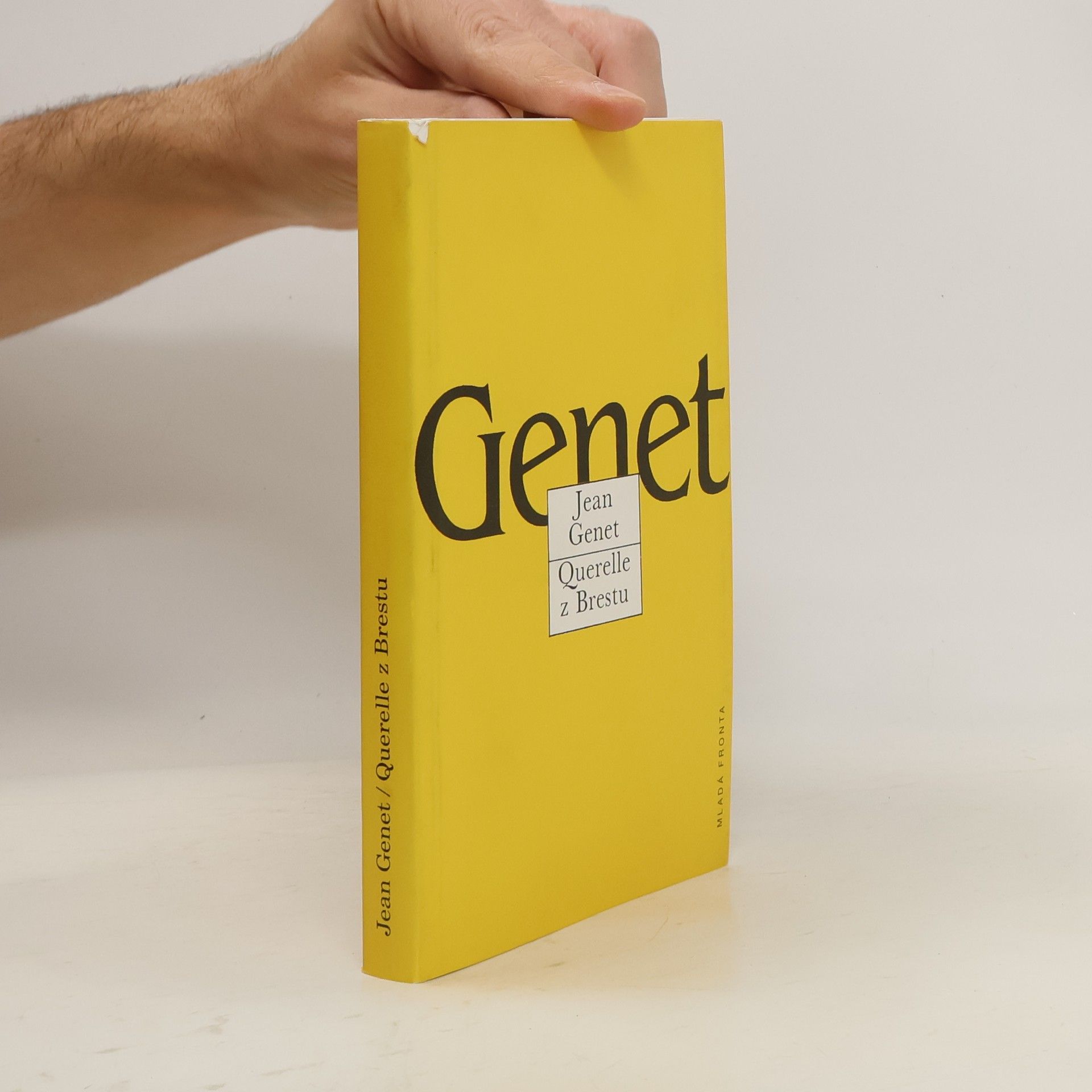Zpřísněný dozor
- 70 stránek
- 3 hodiny čtení
Drama Jeana Geneta se odehrává ve vězeňské cele a jeho aktéry jsou 4 mladí muži - tři vězni a jeden dozorce.
Jean Genet byl jedním z nejvýznamnějších francouzských spisovatelů dvacátého století, proslulý jako básník, romanopisec, dramatik a politický esejista. Jeho díla, z nichž mnohá byla ve své době považována za skandální, jsou dnes řazena mezi klasiku moderní literatury. Genet se ve své tvorbě zabývá tématy okrajových postav společnosti a zkoumá složitosti morálky a identity. Jeho jedinečný styl, plný provokativních obrazů a silných emocí, zanechal nesmazatelnou stopu v literárním světě.







Drama Jeana Geneta se odehrává ve vězeňské cele a jeho aktéry jsou 4 mladí muži - tři vězni a jeden dozorce.
Kniha o životě jednoho námořníka, jehož existence osudově změní život všem, kdož se s ním setkají. Homosexualita, zrada, vražda.
Román Pohřební obřad je oslavou smrti Jeana Decarnina, autorova přítele, zastřeleného 19. srpna 1944 na barikádách při osvobozování Paříže. Genet ve své bolesti zjišťuje, že nejvyšší poctu, jakou může mrtvému Jeanovi prokázat, je vylíčit své sny o životních příbězích nejopravdovějších a nejkrásnějších vojáků, kteří doposud bojují a milují se za komíny pařížských domů. Román se stává mohutnou epickou básní, v níž se zloději, zrádci, udavači, homosexuálové, němečtí vojáci a Hitlerem zpodobněná Říše podílejí na pohřebním obřadu za zastřeleného Jeana Decarnina.
V této knize líčí Genet své toulky po Evropě, život mezi zloději, tuláky a žebráky, lásku k jednorukému Stilitanovi (který jej nikdy nemiloval). Podle určitého názoru je to vrchol Genetova díla, podle druhého "snůška obrácených moralit".
Divadelní hra francouzského autora, který se zamýšlí nad převrácenými mravními hodnotami. Peklo se stává rájem, temnoty jasem, neřest jedinou ctností. Vrah je světec, na němž ulpívá milost zločinu, a odsouzen za svůj zločin dostává nálepku mučedníka.
Dvě hry (Balkón, 1956; Černoši, 1958) francouzského autora, o němž Jean-Paul Sartre napsal životopis pod názvem Svatý Genet, herec a mučedník. Hry s převrácenými mravními hodnotami, o nichž se v doslovu J. Konůpka říká: „Každá Genetova hra se jeví jako rituál, posvátný obřad, jako jakási mše, arci černá, v níž její sloužící-herci velebí, povznášejí, vysvěcují zlo. Hodnoty jsou tu dokonale obráceny: peklo je rájem, temnoty jasem, neřest jedinou ctností. Vrah je světec, na němž ulpívá milost zločinu, a odsouzen za svůj zločin dostává aureolu mučedníka.“
Starting in 1970, Jean Genet—petty thief, prostitute, modernist master—spent two years in the Palestinian refugee camps in Jordan. Always an outcast himself, Genet was drawn to this displaced people, an attraction that was to prove as complicated for him as it was enduring.Prisoner of Love, written some ten years later, when many of the men Genet had known had been killed, and he himself was dying, is a beautifully observed description of that time and those men as well as a reaffirmation of the author's commitment not only to the Palestinian revolution but to rebellion itself. For Genet's most overtly political book is also his most personal—the last step in the unrepentantly sacrilegious pilgrimage first recorded in The Thief's Journal, and a searching meditation, packed with visions, ruses, and contradictions, on such life-and-death issues as the politics of the image and the seductive and treacherous character of identity. Genet's final masterpiece is a lyrical and philosophical voyage to the bloody intersection of oppression, terror, and desire at the heart of the contemporary world.
Jean Genet's seminal Our Lady Of The Flowers (1943) is generally considered to be his finest fictional work. The first draft was written while Genet was incarcerated in a French prison; when the manuscript was discovered and destroyed by officials, Genet, still a prisoner, immediately set about writing it again. It isn't difficult to understand how and why Genet was able to reproduce the novel under such circumstances, because Our Lady Of The Flowers is nothing less than a mythic recreation of Genet's past and then - present history. Combining memories with facts, fantasies, speculations, irrational dreams, tender emotion, empathy, and philosophical insights, Genet probably made his isolation bearable by retreating into a world not only of his own making, but one which he had total control over.
This nightmarish account of prison life during the German occupation of France is dominated by the figure of the condemned murderer Harcamone, who takes root and bears unearthly blooms in the ecstatic and brooding imagination of his fellow prisoner Genet. Miracle of the Rose (in French: Miracle de la rose ) focuses on Genet's experiences as a detainee in Mettray Penal Colony and Fontevrault prison - although there is no direct evidence of Genet ever having been imprisoned in the latter establishment. This autobiographical work has a non-linear structure: stories from Genet's adolescence are mixed in with his experiences as a thirty year old man at Fontevrault prison. Genet was detained in Mettray Penal Colony between 2 September 1926 and 1 March 1929, after which, at the age of 18, he joined the Foreign Legion.
The Criminal Child offers the first English translation of a key early work by Jean Genet. In 1949, in the midst of a national debate about improving the French reform-school system, Radiodiffusion Française commissioned Genet to write about his experience as a juvenile delinquent. He sent back a piece that was a paean to prison instead of the expected horrifying exposé. Revisiting the cruel hazing rituals that had accompanied his incarceration, relishing the special argot spoken behind bars, Genet bitterly denounced any improvement in the condition of young prisoners as a threat to their criminal souls. The radio station chose not to broadcast Genet’s views. “The Criminal Child” appears here with a selection of Genet’s finest essays, including his celebrated piece on the art of Alberto Giacometti.